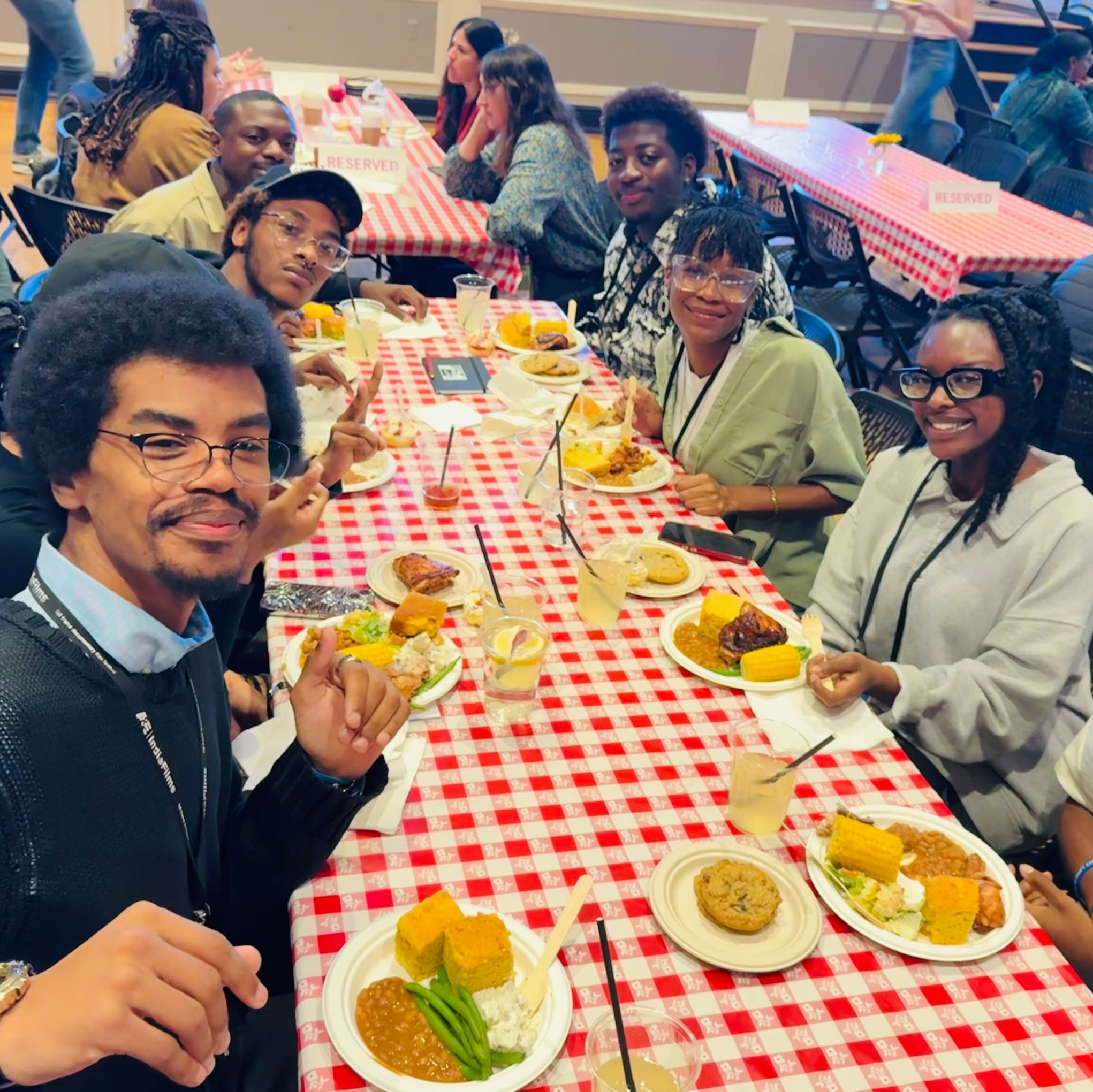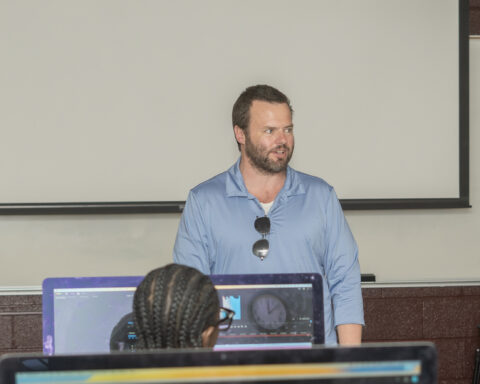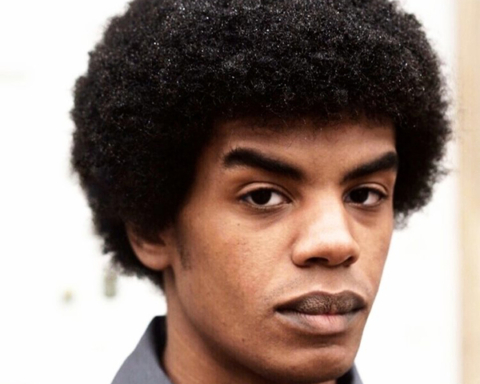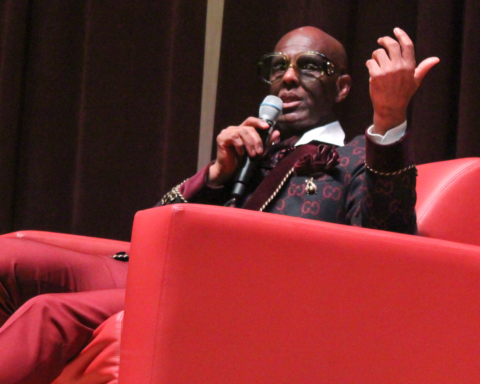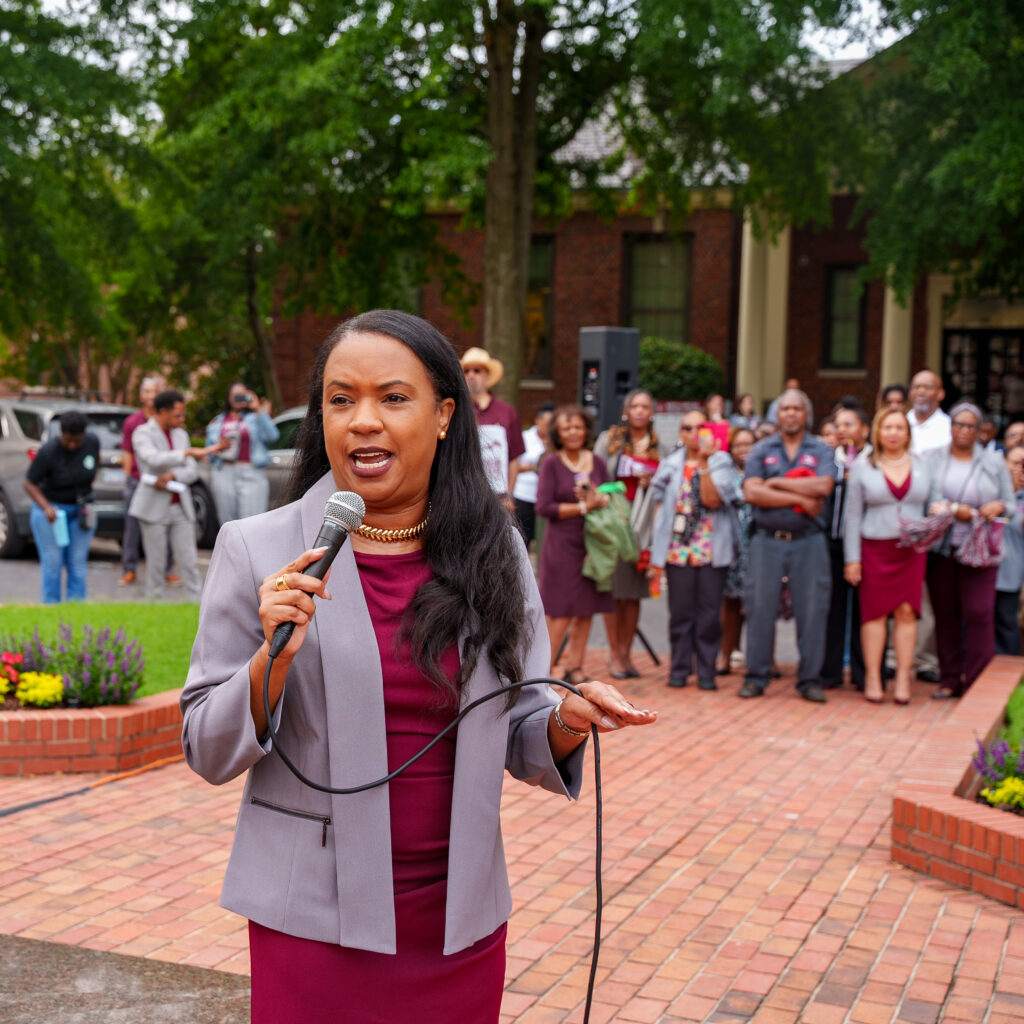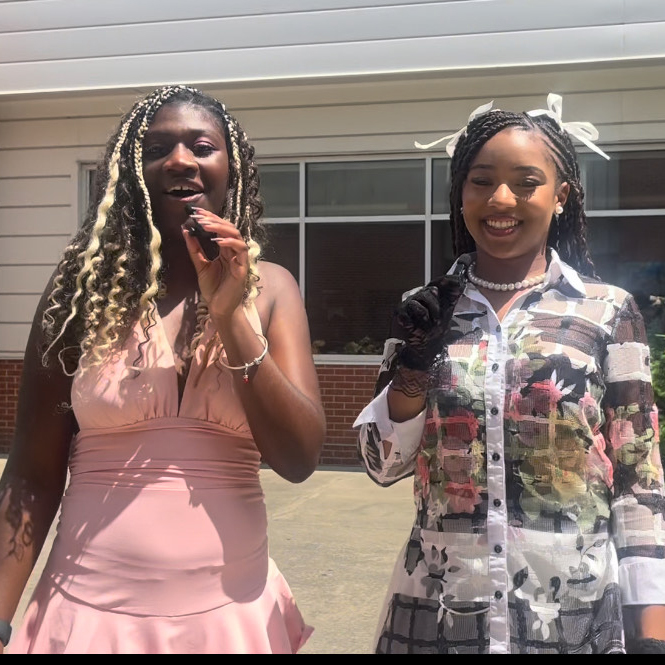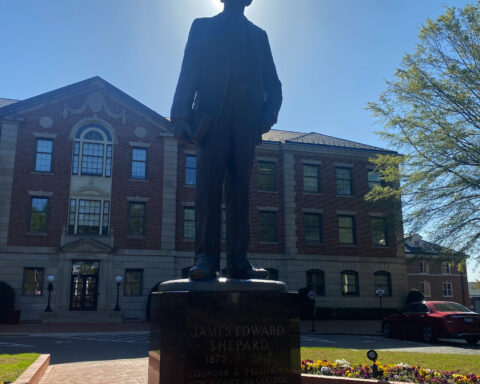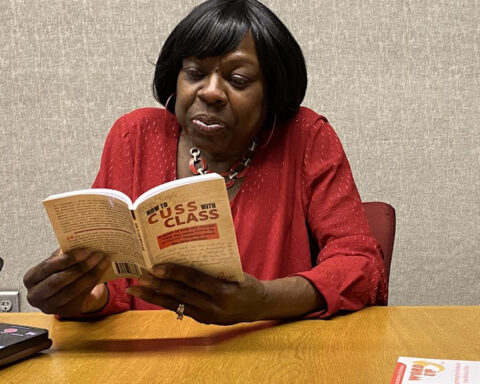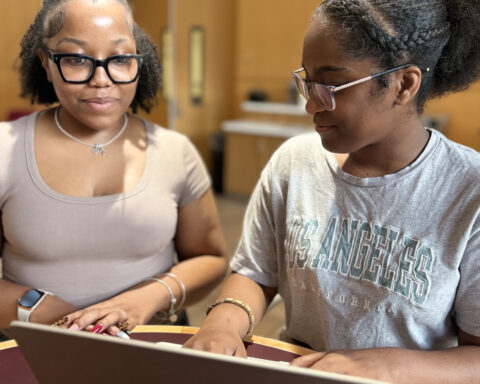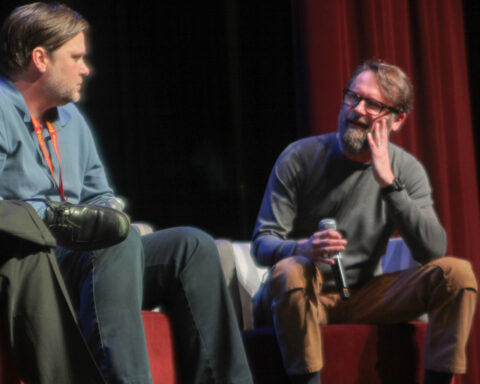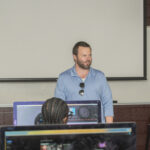As I re-write this, my heart is heavy. This story’s early drafts introduced our newest faculty member, Kenneth Campbell. It told a story about how he grew from a student in our department, to earning an MFA at Howard University. It told a story of his return to our department and how quickly he became beloved by students.
It’s now all that, but sadly death is part of every life story … and his came too soon. A few days before classes ended, Kenneth passed away in his apartment.
Born in North Carolina on February 22, 1989, Campbell’s earliest memories were in front of the camera.
“I was a VBAC birth,” Campbell he told me. “WRAL did a story about VBAC births because it’s not common.”
VBAC stands for vaginal birth after C-section, or cesarean, describing a natural delivery following a previous C-section birth. Campbell’s exposure to cameras continued throughout his upbringing; his parents, who were prison ministers, had their own show.
“They had me and my siblings on it a few times,” Campbell said. “It was like a prison ministry televangelism.”
He also said that while he was on set, he could see what the crew did behind the scenes and found their work “complex and interesting.” Campbell’s filmmaking career began at Wake Technical Community College. He was a stage manager in the theater program and the public information officer in the N.C. Community College Student Government Association.
While working towards his associate degree in arts, Campbell realized he wanted to be a storyteller. However, he discovered his passion for documentaries during his time as an Eagle.
“My first class was Dr. Robinson’s Media Studies class,” he said. “I realized immediately that I’d come to the right place, and it was possible for me to become the type of storyteller I envisioned.”
Campbell’s dream became a reality as he continued his studies in the department. He worked as the video and multimedia editor at the Campus Echo. He and Campus Echo adviser, Bruce dePyssler, worked together on “Durham’s Mayor Bill Bell,” a short documentary done for the Howard University Alumni Association.
“Kenneth and I poured hours into that short 15-minute documentary,” said dePyssler. “His work ethic was outstanding. His primary goal when we were at the editing table was that a story had to be told,” said dePyssler, adding that “it’s difficult to even begin to measure the loss we’ve suffered.”
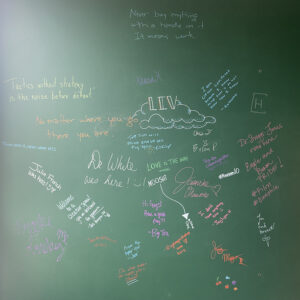
As a inter-institutional student at Duke, Campbell participated in a critical history project that highlighted the efforts of the Student Nonviolent Coordinating Committee. Through this experience, he gained insight into a student-led movement that was reshaping the concept of democracy.
“It helped me understand the historical context in which I wanted to make documentary work,” he said. “You learn how to convince people to see a better version of society, and it is through storytelling.”
This experience resulted in Campbell’s first film as a senior, “Millennials of the Moral Movement.” It was a short documentary that followed three activists who attended the Moral March in Raleigh. After receiving his bachelor’s at NCCU in 2017, Campbell set his sights on and MFA at Howard.
While in Washington, D.C., he developed his voice and participated in the Pan-African Film and TV Festival of Ouagadougou (FESPACO).
“This showed me that the history of filmmaking in Africa is connected to the history of filmmaking in the United States and the African Diaspora,” Campbell said. “It’s tied to developing identity,
both for the individual as well as the collective. It’s just storytelling.”
In 2020, Campbell completed his MFA as a Graduate Exemplar and qualified to teach the African Cinema course in Howard’s graduate program. He would also work with
the Library of Congress and the June Givanni Pan-African Cinema Archive.
Shortly after, Campbell became a director for a second time, creating “BLAHC,” another documentary. Short for the ‘Brookland Literary and Hunting Club,’ Campbell tells
the story of a gentleman’s society created in 1942. It features nine successful Black men from the Brookland neighborhood.
During this time, Campbell relocated to New York and worked as a producer in “MLK/FBI,” an award-winning documentary that chronicles the FBI’s surveillance and harassment of Martin Luther King Jr.
Campbell said that he was shocked by the level of harassment King faced.
“When you look at the history of the U.S. — and really all human history — what’s staggering is the courage people practice,” he said. “When I was reading the FBI files, I thought there was no way Dr. King knew how much of his privacy was being violated.”
Through the documentary, Campbell discovered King’s relationship with Mickey Michaux, a Durhamite civil rights activist and the city’s first Black state representative. He said that hearing Michaux’s perspective was inspiring.
“It made me believe that everything is possible when we work together.”
Campbell aimed to teach the art of film making to his students through the creation of short documentaries, nurturing their creative voices in the process.
Allexus Killian, a mass communication junior had the privilege of being taught by Campbell in the Fall semester.
“He prioritized our education and challenged us to be the best writers we could be,” Killian said. “It was hard to understand the terminologies, the panning or trucking of the camera, but he never stopped trying to help us because that’s who he was.”
He also inspired the creation of and advised the “Nineteen10 Film Alliance,” the department’s new film club. Campbell was currently working on a new documentary about Michaux, who served in the N.C.
State House from 1973 to 1977 and from 1983 to 2013.
NCCU Mass Communication Department Chair, Calvin Hall, said he was impressed by the passion Campbell brings to the sloping hills and verdant green.
“He has a passion for helping us live up to our motto: Stories that matter from perspectives that matter,” Hall said.
In the future, Campbell’s dream was for the Digital Filmmaking concentration to become a stand-alone department.
“This is going to be the center of storytelling in the South,” he envisioned.

